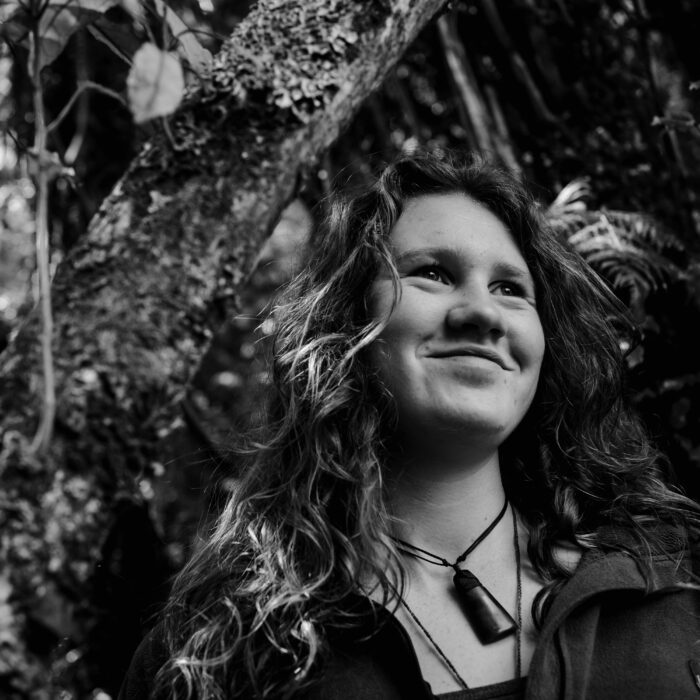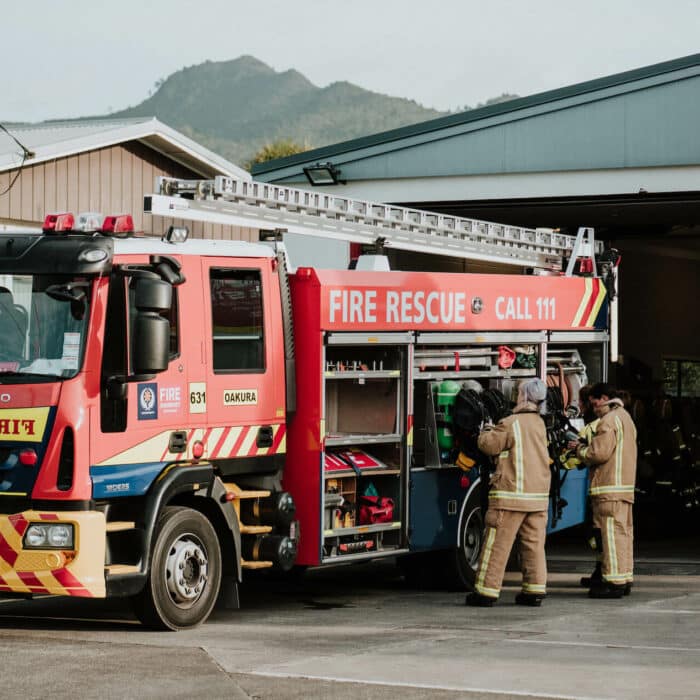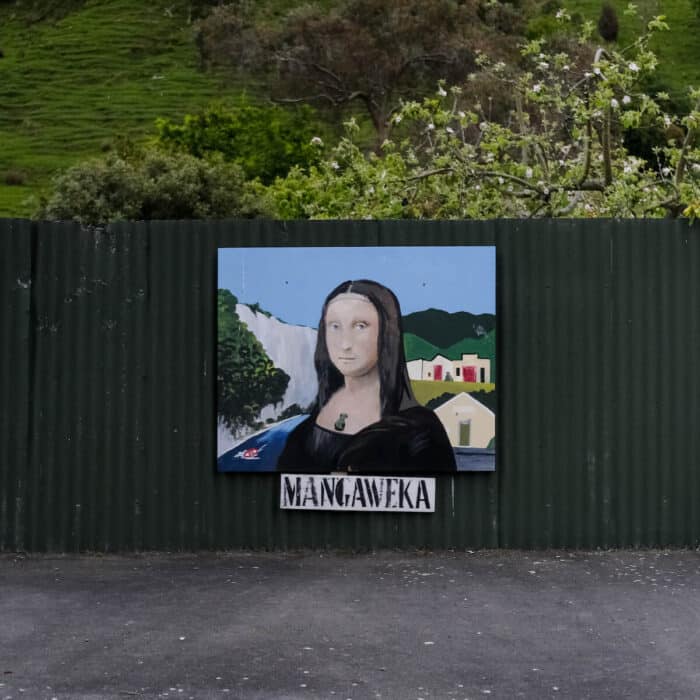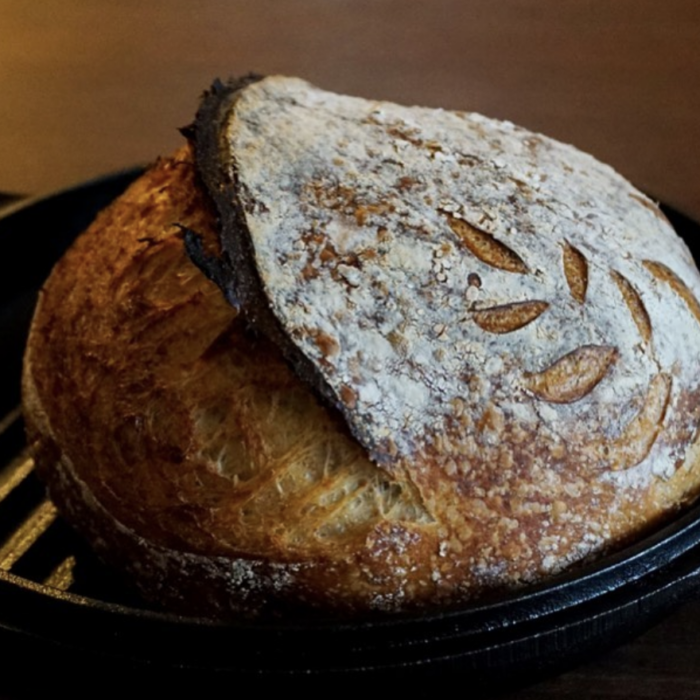25 June 2021
Strength in Solitude
Ngā Hononga. Common Threads.
Writer: CARLY THOMAS
Photographers: TATSIANA CHYPSANAYA (ERICA), ELISE RUTHERFORD (BUB) & HELEN LEA WALL (VANI)
Cut off from loved ones by broken roads or closed borders, even the busiest street in town can feel like the loneliest place in the world. And, while loneliness and isolation is a solitary experience, it’s one we can all relate to. We’ve all been through it at some point. As writer Carly Thomas discovers talking to three women with very different experiences of isolation, it’s often in the depths of solitude that we tap into our greatest strengths.

Amit was Vani's only social contact during lockdown. "When he got home, he was always present and there for me," she says. "He would listen to everything I had to say."
The kids are at school, my husband is at work, and before I race out the door I stop to pat the dog. For just a moment, the house is all mine – quiet, paused, the smell of fresh washing wafting in from the line. It’s also a little lonely. As I drive into Palmerston North, the open paddocks give way to concrete and bustle. I soon turn on to Vani Narayanan’s busy street, and my car is just one more streaming along towards the heart of the central city.
Vani, 27, greets me at the door, welcomes me into her tidy flat and makes me tea. We cradle our mugs and sit on the floor in the heater’s orange glow. It might be cold outside, but it’s warm in this little room, where Vani says, laughing, that she slogs away at her studies, “reading and writing, writing and reading”.
“When I decided to do my PhD, I thought I would move to Palmy so I could be closer to my husband, Amit,” she tells me. Amit’s dream to pursue his master’s in agricommerce first brought the couple to New Zealand four years ago, but while he headed straight to Palmerston North, Vani started out in Wellington. There, she worked towards her master’s in educational psychology, before joining Amit. “The first couple of months here, I was really settling in to my PhD, and it was all a bit crazy getting everything in place and nice,” she recalls. “And then we went into lockdown.”
Vani also relied on her family to keep her going. "I would Zoom nearly every evening with my family in India. There's a six- or seven-hour time difference, so often it would be while I was making dinner. I don't know when we will be able to go back to visit them, but when we do we will have a wedding celebration. Definitely not the way we had planned, but something small with our family and friends."
She pauses to glance at a lone framed picture on the wall. It's a landscape scene from India. "We were supposed to get married in April 2020, and we were booked to travel back in the middle of March," she says. "We wanted to have a traditional South Indian wedding with our families. Everything was planned." South Indian weddings "are a huge affair," Vani says, her eyes shining just thinking about it. "It's a big occasion filled with family and friends, very colourful. They have a lot of guests and for our wedding we were expecting 400 plus."
Vani tells me about her mum and her treasured uncle who passed away earlier this year, and her sparse flat starts to fill with stories of home. "Being in New Zealand, we miss our families a lot. We miss being around them. This is the longest that we have gone without seeing them. It's been more than two years for Amit. My mum was really sad about the wedding. It was difficult for her, and that made it difficult for me."
"I was expecting to be in a festival of people and celebration, and here I was alone. It was the complete opposite."
On the day they'd planned to have their wedding, Vani and Amit instead found themselves in a nationwide lockdown. Vani was alone for most of the day. She hadn't yet made friends in her new city, and Amit was out the door by 4am and gone most of the day for his dairy farming job. "It was just a really strange time," Vani recalls. "I was expecting to be in a festival of people and celebration, and here I was alone. It was the complete opposite."
It was lonely, she says, and she felt disconnected from others. But she got on with her studies, and has since fallen into a daily routine that starts when she wakes at the same time as Amit and ends with a few snatched hours together before exhaustion kicks in.
Three months ago, Vani and Amit made their peace with the fact the big wedding wasn't ever going to go ahead. Instead, they got married in Palmerston North, and had a small ceremony in the little courtyard just off their flat. "We called our parents half an hour before. We wanted the day to be just for us. We didn't get the wedding that we originally wanted, so we just wanted to do this for us." By this time, Vani had made some friends, and two came along as guests. Vani's and Amit's parents were also there via Zoom, their bright faces shining on the laptop screen.
Through all the difficulties and disconnection, it's the knowledge that things will get better that has got Vani through. "I'm hanging onto the fact that I will see our friends and family back in India soon. Although we don't really know when that will happen, we know it will. And then we start planning again. We talk about where we will go and what food we will eat and that gives us hope."
As Vani and I have been talking, we have inched closer to the heater without realising. It's suddenly time for me to go - I have to pick the kids up from school, get the washing in, go and fill my home with its usual afternoon hustle. But, as I place my empty mug in Vani's sink, I don't want to leave her here alone.
As I pull out onto the road outside, cars flow past me. I become one of them, snaking back out of the city and past the familiar paddocks. I think of Vani back in her little flat, busy writing, and I drive home contemplating her words.
Later that night, I hop on Zoom and smile when Bub Taylor's face lights up my screen. She's grinning and wearing her pyjamas, tucked up on her couch like a cat. Bub is gregarious - definitely a people person - and we're soon chatting away like old friends. And, the minute she starts to tell her tale, I can tell it is going to be quite a ride.
When the Kaikōura earthquake struck in 2016, this now-dilapidated homestead on Bub and Marcus Taylor's family farm was written off, along with the shearers' quarters. "Our house was deemed fixable," says Bub, pictured here with Marcus and their girls, Tessa, four, and Indiana, two. "But it was completely unliveable, so we fixed it, from the inside out."
"I went to bed like any old day and woke up to just the most horrendous earthquake. This one was quick and fierce. This was like, boom, straight into it."
She begins almost five years ago, when she was nearly six months pregnant with her first baby. "I went to bed like any old day and woke up to just the most horrendous earthquake. This one was quick and fierce. This was like, boom, straight into it." Bub lives near Kaikōura, on a 10,000 acre farm, and is remembering the region's November 2016 shake. "My natural instinct was to go straight to the bedroom door frame. That's what you are told to do, but I think it was actually the worst thing to do. I was hanging on for dear life and everything was just swaying. It catapulted me off the wall, and I got thrown into the hallway wall on the opposite side. I crashed into it but still my natural instincts said, 'Get to the door frame,' so I crawled back to that blimmin' door frame and I held on again." But she was kicked straight back to the ground by the relentless swells. "The earthquake was still going, and my husband came and picked me up and literally dragged me through the house and threw me under the kitchen table."
Pregnant, scared and in pain, Bub surveyed the carnage. All around her lay broken furniture. Cupboards had been emptied, their contents strewn everywhere. Water from the tipped-over header tank was flowing through the house. Bub's husband, Marcus, carried her outside, fighting through the debris to get them both out.

The couple slept on the driveway that night. They were woken at 6am by the sound of a helicopter. "I knew straight away who it was," Bub recalls. Her brother, who was working for a helicopter firm in Hanmer Springs at the time, had said to his boss, "I just want you to go and get Bub." The pilot asked Bub if she was okay. "I said, 'No, I can hardly walk and I haven't felt the baby move since god knows when.'"
Bub was flown first to Kaikōura Hospital, while Marcus set off on a motorbike to open the farm gates so the stock could get to water and safety. Then, Marcus raced to Kaikōura Hospital, getting there in the nick of time to fly with Bub to Christchurch Hospital. She had broken her tailbone, twisted her sacrum, and her blood pressure was through the roof.
After a few nights in hospital, she was told to "go home and rest". But their home was unlivable, as were the other two houses on the family property, and the road to Kaikōura was closed. Marcus and his workers were living in tents and cooking on a BBQ. "I said, 'Well, I don't have a home, so what are we going to do now?'" Bub recalls. "I just stayed at my in-laws, my brother's and I floated for the next few weeks." It would be a long time before she saw the farm again.
And then another shadow fell on Bub's path: she had preeclampsia. Since her blood pressure was dangerously high, Bub's baby needed to be delivered. Her midwife told her to "buckle in for one hell of a ride", and Indy was born by emergency caesarean weighing only 900 grams. In the three months that Bub and her new baby spent in hospital, she says she became completely isolated from her husband and her home. "I knew I needed to get out of the hospital. I could feel myself starting to go downhill, and I don't think it was healthy for us to stay in there any longer. There was the big talk about where to go, and I didn't really know. Living in a tent would have gone down real well!" She laughs, humour in her hindsight.
"We've been to hell and back more than once, so whatever comes next won't be as bad as what we've already been through."
Houses had been destroyed right across the region, so there wasn't a lot of accommodation going. Bub took the first thing offered to her: a ski chalet at Mt Lyford that was usually a holiday rental. It was far from anywhere and far from ideal, says Bub. "The cabin pretty much didn't have any windows. It was dark and never saw the sun. Reality hit. I wasn't near the farm, my husband I only saw for maybe two hours each night, and no one was going to come and see me. I was in the middle of nowhere."
Bub was already navigating the rupture of being separated from her home, but that was when her sense of isolation took on a whole different aspect. Having a new baby and being a mum wasn't shaping up at all how she'd thought. Bub says it was a dark time. "I would think, 'I am going to lose my mind,' and when I started thinking like that I would just say, 'Right, time to get outside.' I was in survival mode. I was for years. I think, in a way, we are still in it."
Now, Bub and Marcus have rebuilt their house. Indy has a sister, Tessa, and there's another baby on the way. They are still fixing the farm, and will be for years to come. "I think, 'What could possibly happen to us next?' We've been to hell and back more than once, so whatever comes next won't be as bad as what we've already been through."

"I like to keep my hands busy, and this is something that I can do," says Erica, who spins her own wool to make scarves, gloves and socks.
"What is lonely? I keep myself busy. There is always something to do."
A week later, I am doing a cross-region hurtle from Marlborough to Nelson. The rental car's GPS is my faithful guide - it's the only thing keeping me from getting lost in this unfamiliar part of the country. Here in south Marlborough, the earthquake damage is still part of the everyday, and I think of Bub. Right now, though, I am on my way to a new dot on the map: the home of Erica Jelinek. The 92-year-old lives alone on the outskirts of St Arnaud, and the journey to her house is long, no matter which way you come at it. After trundling along a gravel road for a good ten minutes, I come across a letterbox and my GPS finally declares that I have "arrived".
An Austrian-style house sits perched on top of a hill, surrounded by an immaculate garden where vegetables mingle with flowers. There are geraniums, carrots, kale and marigolds. And, leaning on her totara-post gate, is Erica. I greet her, and she tells me that here, on the land she came to from Austria seventy years ago, she is alone but never lonely. "What is lonely? I keep myself busy. There is always something to do."
Since Erica's sight and hearing aren't what they used to be, her neighbour Caroline Wade has come along to help us chat. Inside, Caroline gets us tea and plates up some of Erica's home baking. "She always has a full tin," Caroline says, with a wink. "You have a very amazing woman in front of you."
I can already see that. As I lean in close so Erica can hear my questions, I take in her delicate face and hands. She looks me up and down too, showing the spark of her intrepid younger self. In 1951, at the age of twenty-two, she came to live here with her new husband, Leo. They travelled by boat for six weeks, leaving behind Russian-occupied Austria. "We knew that to get ahead we had to go, and New Zealand had a good standard of living," she explains.

For the first nine years, there was no house - just a hut and 500 acres covered in ferns and stumps. "We had no idea of farming. We were townies." It was a world away from Erica's university days in Vienna and the millenary and haberdashery shop her family ran, but she says she never got homesick. "There was no time for that. When you are young, you just get on."
Their first child of five slept in a suitcase, and the family lived off wild pork and home-grown vegetables. She shows me photos from that time, black-and-white memories of a life built from the ground up. There she is working with her tall husband, and planting trees with her children. "This is me driving the tractor." She looks so young, with a defiant edge to her grin.


Erica homeschooled the children, knitted and sewed their clothes, endlessly chopped firewood for the stove, and kept everyone fed. She was also a lumber girl, helping her husband at his sawmill. "I did all the tailing out of the timber and put the chains on the logs and dragged them out. I'm not sure I enjoyed it! I suppose I did. You have to enjoy your work, don't you? It was hard, but it had to be done."
Their hard work eventually took the form of an alpine house unlike any other in the area, built by Leo in 1960 from rimu and beech he felled with his own hands. They moved in as soon as there was a bedroom, a bathroom and a kitchen. There may not have been a floor, but after nine years in a hut "it was wonderful" says Erica, her smile wistful. Leo lovingly built another one-bedroom house - the one we are drinking tea and eating biscuits in now - in 1983. Their son Tom came home to help his father with the farm and took up residence in the original house. He and his wife, Judi, are still there and visit Erica every morning.
While Erica says she is very lucky to have such good neighbours, she also prizes her own company. "It is enough, and I have my books." Heavy tomes fill her shelves - books on history, science, botany and alpine plants. Erica is an avid learner and her mind is sharp. I ask if she would move to town. "Not now, no. I could adapt to being in town, but I am used to it here. I didn't feel like making that decision after my husband died, so I didn't. I stayed and here I am." In this little house, Erica is surrounded by all the beauty and care that Leo's hands infused it with. "He was a very clever man," says Caroline. "Erica misses him."


When I get up to say goodbye, Erica gives me a loaf of fresh-baked bread, but it's not the only thing I carry home. Her story has shown me how life can give as much as it takes away. How life can be something you live alone, but still contentedly, especially when you have caring neighbours to fill in the gaps of solitude with cup-of-tea visits. As I drive away, I glance in my rearview mirror and I see Erica leaning on her gate once more. Up on her hill, she might be out on a limb, but she has made her own way.
As I think of each of these women - Vani, Bub and Erica - and the stories they have shared with me, I feel a sense of life coming full circle. These three women's experiences have touched me. Despite their differences, they have shared with me something essential, life-giving and authentic: their strength. Out on a limb, up a mountain or in the heart of a city, we all encounter moments of solitude and loneliness, but it's our resilience that keeps us moving forward and gives colour to our stories.
If you enjoyed this story, please share with someone else.
This story appeared in the Takurua Winter 2021 Edition of Shepherdess.
Get your hands on a copy.
Related Stories
Mangaweka
Born and raised in Mangaweka, Alison Dorrian, 73, and her husband, Henry, worked to protect its bush and wildlife while raising their six children.
Jaz Mathisen’s Sourdough Bread Recipe
This is the perfect loaf to make on a slow weekend when all you crave is something hearty and nourishing.



